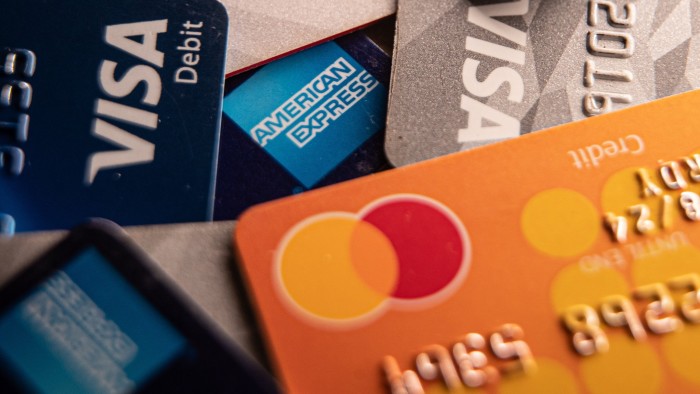Unlock the Editor’s Digest for free
Roula Khalaf, Editor of the FT, selects her favourite stories in this weekly newsletter.
UK credit card borrowing costs have soared to the highest levels in nearly two decades as falls in personal loan rates have paved the way to fresh options for consumers to tackle debt.
The average annual percentage rate (APR) from the start of March until the start of June rose to 35.7 per cent, the highest on record since at least 2006, according to data provider Moneyfacts UK.
The average interest rate on cash withdrawals from credit cards also hit record levels over the same period, increasing from 29.4 per cent a year ago to 30 per cent today.
The rise in credit card costs came despite a cut in the base rate in May by the Bank of England from 4.5 per cent to 4.25 per cent.
“Consumers who use their credit cards for everyday purchases will be disappointed to see borrowing costs rise to the highest point since records began almost two decades ago,” said Rachel Springall of Moneyfacts.
She acknowledged that “a combination of factors” had led to the increase, including some providers, such as Halifax, increasing their purchasing and cash rates during the period.
According to analysis from the Money Charity, the financial education charity, the average credit card debt per household stands at £2,579.
At the same time as the rise in credit card borrowing costs, there were better deals on offer for personal loans. Over the March to June period, the average unsecured personal loan rate for £3,000 and £5,000 deals over three years dropped to their lowest since June 2023.
Rates for £7,500 and £10,000 loans over five years also recorded a slight reduction in the period compared with same time last year.
Springall said an unsecured personal loan was a “sensible choice” for consumers struggling with multiple debts who are looking to consolidate them, in particular if they are paying a high rate of interest on credit cards.
Lenders are also offering a wider variety of deals to help people manage their debt, with the number of interest-free purchase offers available jumping to 64 in the March to June period from the 58 over the same time last year. The average interest-free purchase term on credit cards rose from 267 days in March to 286 in June.



